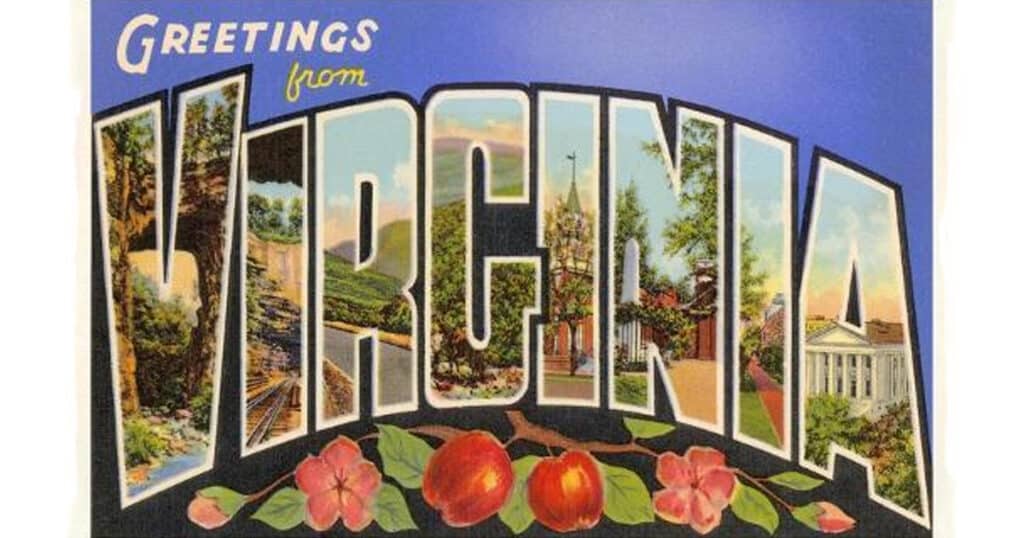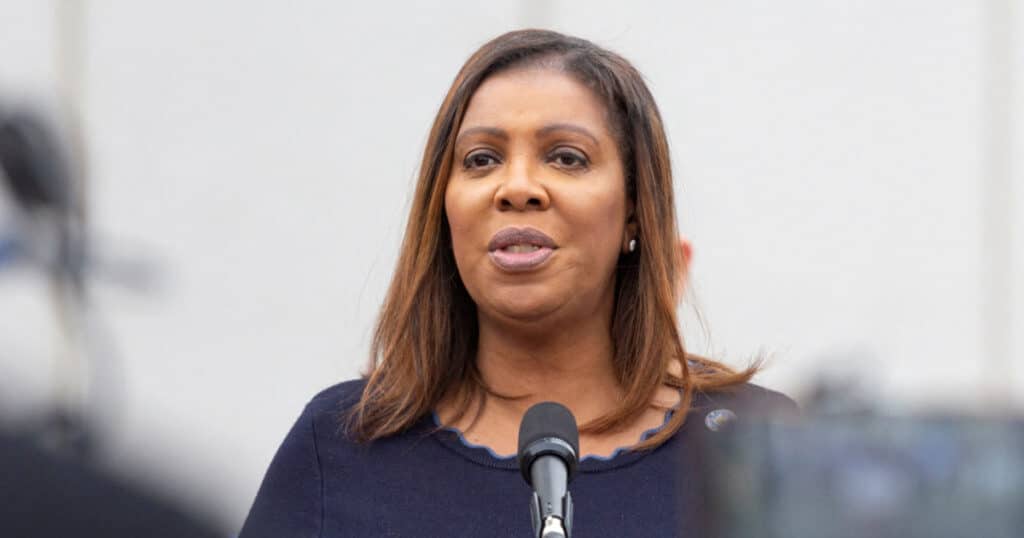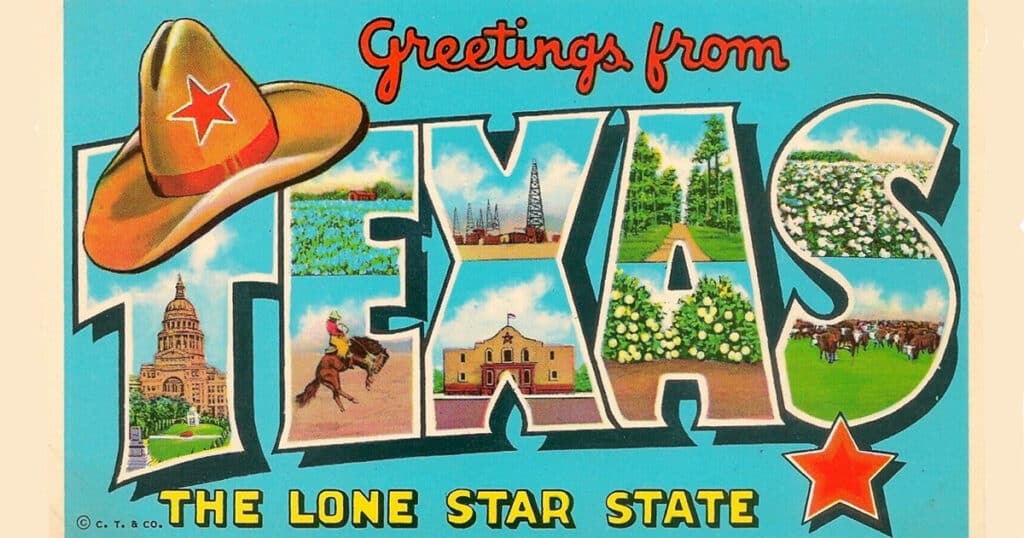
Goldman Sachs Millionaire Bankrolling Virginia’s Democrats
Call him Virginia’s George Soros or “Daddy Greenbucks,” the well-heeled financier funding dozens of Democrats ahead of the Commonwealth’s critical 2023 election, which will determine control of the General Assembly – and the future of Gov. Glenn Youngkin’s legislative agenda.
Michael D. Bills is a former Goldman Sachs vice president who currently helms Bluestem Partners, a hedge fund management firm with a reported $1.5 billion in assets. Eight out of 10 Bluestem clients are high net-worth individuals required to invest at least $3 million in the fund.
But Bills is also the mega-donor behind Clean Virginia, a political group that wants to clear “corruption” in our legislature by electing Democrats – including House of Delegates candidate Susanna Gibson, better known today as “HotWifeExperience.”
The Washington Post exposed that Gibson regularly live-streamed herself having sex with her husband on the platform Chaturbate, encouraging her 5,700 followers to send the couple tips (“raising money for a good cause”) in exchange for whichever sex acts the tipper desired.
Filings reveal that, at $46,000, Clean Virginia is the top contributor to Gibson’s campaign for District 57, a toss-up centered in Henrico County that could determine control of the General Assembly in November. But that’s just the tip of the iceberg.
“People Before Profits”
In total, Bills has funneled nearly $21.5 million into Virginia campaigns – $17.5 million of it into Clean Virginia since it launched in 2018 – becoming the state’s single largest political contributor, according to the Virginia Public Access Project. That includes six-figure contributions to Ralph Northam’s 2017 gubernatorial campaign, Mark Herring’s 2017 attorney general campaign, and the Virginia Democratic Party.
Clean Virginia calls itself “independent and bipartisan,” yet so far, it has endorsed 57 Democrats and a single Republican, state Sen. David Suetterlein.
Between them, Bills and Clean Virginia are responsible for 84% of the budget of Commonwealth Forward, a “progressive” committee for electing Democrats that boldly proclaims, “Corporations control Virginia,” but “Virginia is not for sale.” (Hedge funds apparently don’t count as wicked corporations.)
Nationally, Bills is a major donor to Democratic PACs including the 2020 Biden Action Fund ($100,000), the 2016 Hillary Victory Fund ($403,000), and the 2012 Obama Victory Fund ($25,000), as well as numerous state Democratic Parties.
In the 2022 midterms, he poured tens of thousands of dollars into committees backing Wisconsin Senate candidate Mandela Barnes, Virginia Rep. Abigail Spanberger, and Georgia Sen. Raphael Warnock, while also maxing out his personal contribution limit to dozens of other Democrats’ campaigns.
Green Raw Deal
There’s a larger eco-agenda at play here, however. Bills sits on the board of the Environmental Defense Fund, a top global warming group that fights carbon-free nuclear energy and wants to go “net-zero.” The fund has offices in Beijing dedicated to reducing China’s carbon dioxide emissions by 2035 – a long shot since China withdrew from the Paris Climate Accords in July, stating it has no intention of following the West into an unachievable carbon-free fantasy.
Closer to home, Bills is a major contributor to the League of Conservation Voters’ Victory PAC, the Democrats’ top get-out-the-green-vote organizer whose Virginia arm has poured nearly $11 million into state races since 2005.
As the name suggests, Clean Virginia wants the Commonwealth to abandon oil and natural gas and transition to renewables: wind and solar.
The turning point for their agenda came in 2019 when Democrats seized control of both houses of the General Assembly for the first time since 1993. Liberal NPR reported that environmental groups were the election’s top single-issue spenders at $6 million, thanks to the obscure Michael Bills. The headline: “Environmental Groups Were Top Donors In Virginia’s Elections. Now, They Want Results.”
“Results” meant advancing the Green New Deal in Richmond. In 2020, Democrats under Gov. Ralph Northam passed the Virginia Clean Economy Act mandating that energy utilities Dominion Energy and Appalachian Electric Power go “net-zero” by producing 100% renewable electricity by 2040 and 2050, respectively. They also started the process of adding Virginia to the Regional Greenhouse Gas Initiative (RGGI), a compact of Northeastern states created to vanquish global warming with renewables.
One of Glenn Youngkin’s first acts as governor in 2022 was to begin withdrawing Virginia from RGGI, pointing out that it has cost consumers an average of $2.39 per month and industrial ratepayers a staggering $1,554 per month, pushed 100,000 households into Virginia’s energy assistance program (at a cost of $46 million to taxpayers), and is estimated to cost ratepayers $1.2 billion by 2025.
At RGGI’s core is a “master tax” on carbon dioxide (CO2) – dramatically raising the cost of food, electricity, gasoline, water, and other life essentials.
Yet 61% of Virginia’s electricity is produced from burning natural gas – which emits only half as much CO2 as coal and 71% as much as heating oil when burned – and another 29% from our four nuclear reactors, which emit zero carbon dioxide.
Feeling Green
Many on the left pretend that big companies like Dominion Energy oppose renewables, but in truth, “going green” is great for making quick profits. Big Business has a long history of wedding its bottom line to the interests of Big Government politicians and professional activists.
Dominion Energy boasts about its “sustainable” solar farms. Yet rainy, cloudy Virginia is poorly suited for generating solar power and at 10.4 years, the return on investment for installing solar panels here is one of the worst nationwide. These are decisions driven by ideology, not hard-headed economics.
For its part, Clean Virginia accuses Dominion of jacking up electricity rates and spending too much on lobbying at ratepayers’ expense, calling it “legalized corruption.” Utility companies, it says, should be barred from funding politics in the future and stop inflating our electricity bills.
Perhaps they should stay out of politics – but don’t expect Democrats, who are largely responsible for jacking up Virginians’ monthly utility bills, to now lower it.
The left’s climate policies hinge on raising the cost of living to force lower consumption. That’s the strategy in Europe, where few own cars and just 5% enjoy the luxury of air conditioning. Barack Obama put it best on the 2008 campaign trail: “Under my plan … electricity rates would necessarily skyrocket.”
As for special interest influence, the bulk of outside political spending in Virginia in recent years favors Democrats over Republicans, including 2023 contributions from Dominion Energy. Dominion itself has pointed out that Bills’ political contributions “are contingent on doing exactly what he says.” That seems credible since at least three Democratic lawmakers supported by Bills or Clean Virginia have called for a ban on utility companies’ funding political campaigns. Most folks would call that a political payoff.
For its part, Clean Virginia demands its candidates refuse campaign contributions from Dominion. One of them was state delegate Hala Ayala, who received $65,000 from Bills between 2017 and 2019. She then ran for lieutenant governor in 2021 and raked in $510,000 from the utility company. “People change their minds all the time,” she told the press.
So far in 2023, Clean Virginia has spent $4 million, 95% of it on Democrats or leftist political groups. Add that to the $3.2 million Dominion has contributed to Democrats this year, slightly more than the $2.6 million given to Republicans, and it’s clear that the left massively outguns the right, and has for years. (Historically, Dominion, like many savvy companies, has contributed equally to both parties.)
It’s also fair to ask: How many renewable energy manufacturers is Bluestem Partners invested in? Hazy hedge fund reporting laws mean you don’t get to know, and doubtless hedge fund billionaires prefer it that way.
Why the High Bills?
The truth about Virginia electricity prices is far more complicated than simple corruption. By kilowatt hour, Virginia household electricity rates are the 21st lowest in the country at $0.14/kWh, while Virginia businesses pay the seventh lowest ($0.7/kWh).
For comparison, the national average residential rate is $0.17/kWh; in Maryland it’s $0.15/kWh and in North Carolina, $0.12. Not surprisingly, residential rates are highest in New England (averaging $0.25/kWh in 2022) and lowest in southern and mountain states (roughly $0.13/kWh across both regions that year).
Yet Virginia’s average monthly electricity bill for households in 2023 is $131, according to Forbes, the 13th highest in the nation. That places it near Texas and Rhode Island, far below Hawaii ($178) and Connecticut ($156), and far above Idaho ($98) and Utah ($81).
Why? Electricity rates are up 4.6% nationwide – 1% in Virginia – since last year, in large part due to “Bidenflation.”
But southern and southeastern states also consume significantly more electricity compared with the Pacific Coast, Upper Midwest, and Northeast. The single biggest factor: air conditioning, followed by space heaters and water heaters. Over 90% of new homes built in the South are equipped with central air conditioning, compared with less than 70% of new homes built in the Northeast.
Even without net-zero policies driving electricity costs through the roof, using more power at a lower rate generates a fatter bill than less power at a higher rate.
So what should Virginians do about it? The answer is obvious: Follow Gov. Youngkin’s lead and vote in a Republican majority to the General Assembly this November. Reject the Michael Bills-funded Democrats and demand a sensible energy policy that will lower our utility bills and secure energy independence.
This article was originally published by RealClearPolitics and made available via RealClearWire.



